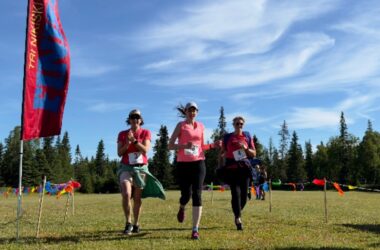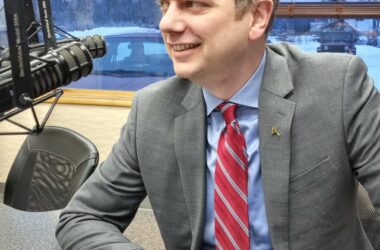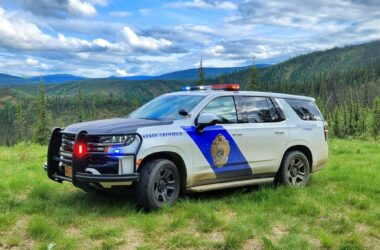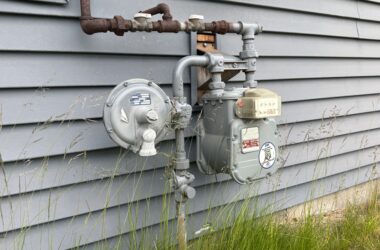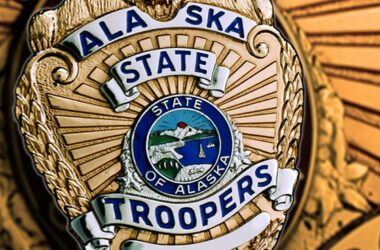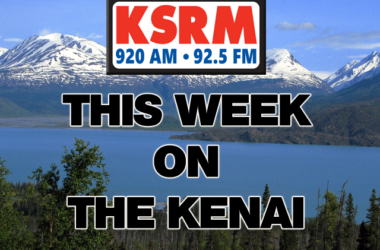The Alaska SeaLife Center (ASLC) in Seward admitted its first live patient of the 2025 wildlife response season: a female northern sea otter pup rescued from a beach in Homer. Estimated to be around two months old, the pup was found alone, lethargic, and malnourished.
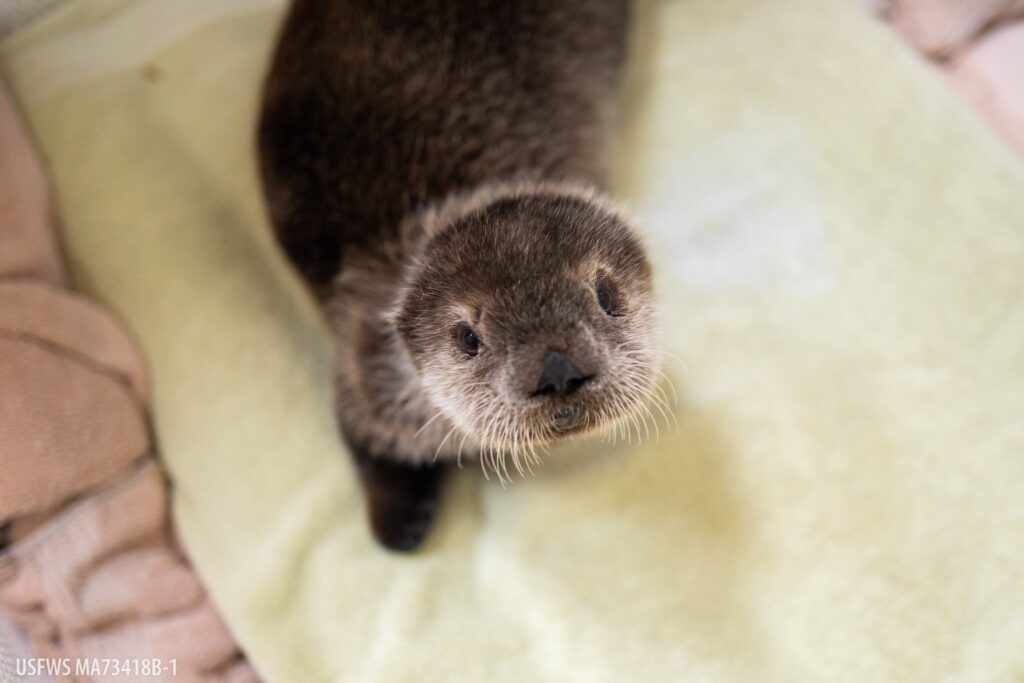
The report came through ASLC’s 24-hour Stranded Marine Animal Hotline, prompting a swift response from ASLC wildlife response volunteers Mike Coffing and Sarah Wilhelm. After assessing the pup and confirming her critical condition, the team relayed their findings to ASLC staff in Seward, who immediately contacted the U.S. Fish and Wildlife Service to authorize her transport for urgent veterinary care.
Before the journey to Seward, the pup received initial triage and stabilizing care at Kachemak Bay Animal Hospital, thanks to the support of Dr. Zach Gardenfors, ASLC Wildlife Response Staff Member Christie Hill, and the hospital team. Their rapid response helped prepare her for the next phase of treatment. With time of the essence, volunteer Mike helped get the pup to the ASLC faster by meeting the transport team en route.
“It was a super quick response by our Homer team that gave this little girl a chance,” said ASLC Husbandry Coordinator Deanna Trobaugh, who fielded the original call and helped coordinate the rescue. “It’s always a race against the clock with animals this young,” Trobaugh added. “Our team in Homer responded with urgency and compassion. Everything came together quickly to get her to the ASLC, where she could get the help she needed.”
Upon arrival at the Alaska SeaLife Center, the veterinary team found the pup suffering from dehydration, malnourishment, and a suspected injury to one of her front paws. She is currently receiving 24/7 care, stabilizing treatments, and additional diagnostics to better understand the severity of her condition.
“Sea otter pups like this one need round-the-clock care in their earliest months of life,” said Jane Belovarac, Wildlife Response Curator at ASLC. “They rely on their mothers for everything from grooming to nutrition, and when a pup is orphaned, it’s up to our team to step in. We’re doing everything we can to give this pup the best possible start.”
Those interested can follow the pup’s progress with behind-the-scenes rehab stories from the ASLC’s Instagram and Facebook pages: @AlaskaSeaLifeCenter.
As the 2025 rescue season begins, the ASLC Wildlife Response Program stands ready to care for Alaska’s most vulnerable marine animals. You can help make these rescues possible by supporting the team’s work and reporting marine animals in need from across the state. Remember, before approaching an injured or stranded marine animal, call the 24-hour Stranded Marine Animal Hotline at 1-888-774-7325. Our staff and volunteers make handling wild animals in need look easy, but it can be extremely dangerous without proper training. The best thing you can do is call first!
The Center acknowledges the ongoing generous support of the Wildlife Response Program from supporters like ConocoPhillips Alaska, Marathon Petroleum Corporation, PetZoo, Partners 4 Wildlife, Matson, GCI, and a number of individual donors, funds, and foundations such as Stanley J Williams Fund, Mesara Family Foundation, The Theresa Bannister Fund, and the NC Giving Fund.
The Alaska SeaLife Center’s Wildlife Response Program can only provide care for stranded and injured marine animals with help from corporate sponsors and individual donors. Supporters can help provide vital care for marine animals in need by donating at alaskasealife.org/donate.

